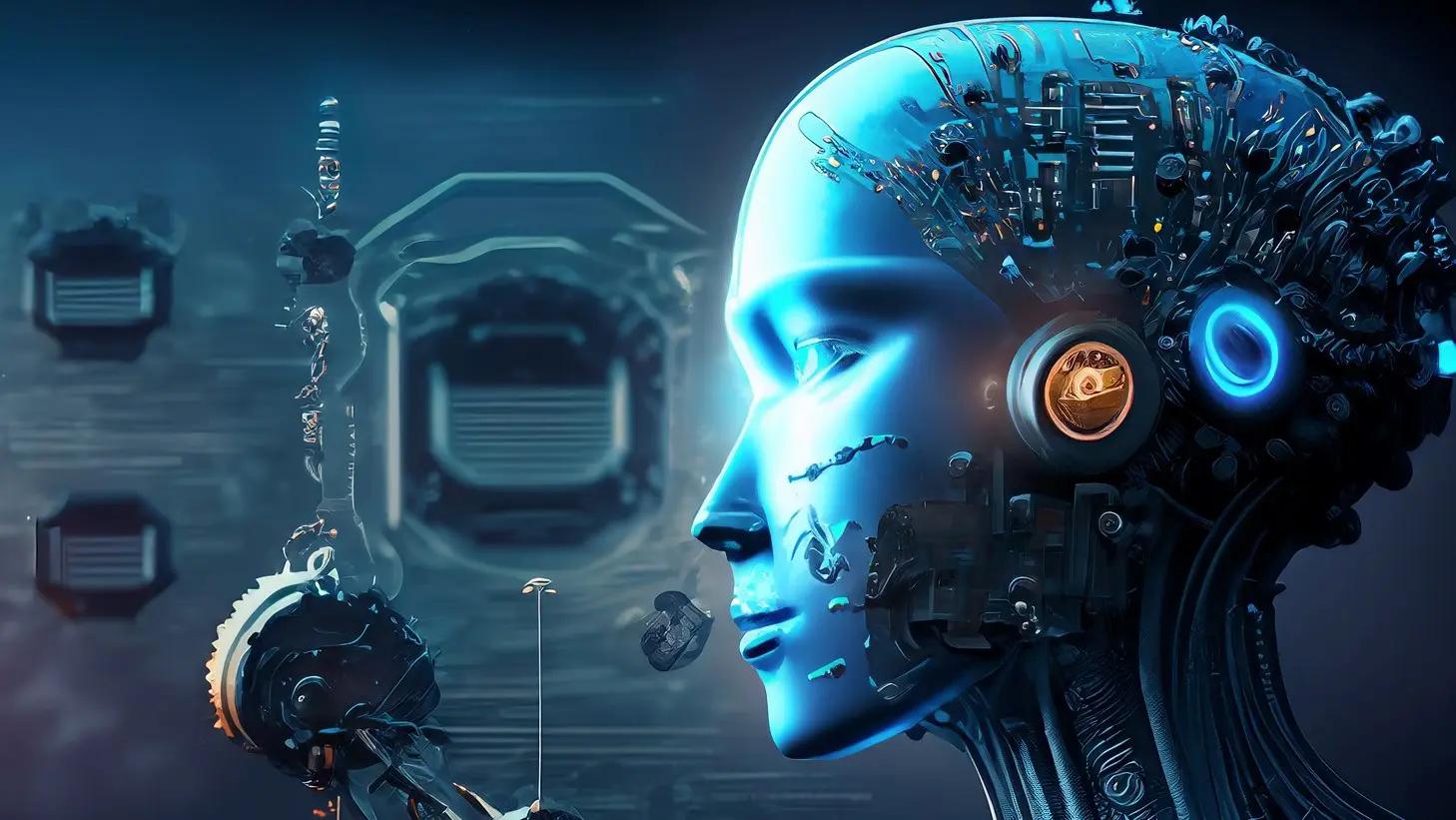
How Conversational AI is Revolutionizing Conversations: The Future of AI Assistants
The Future of Conversational AI 2024 Predictions
Introduction
In the realm of artificial intelligence (AI), one of the most transformative technologies reshaping our world today is conversational AI. This technology, which powers voice assistants like Amazon's Alexa, Google's Assistant, and Apple's Siri, as well as chatbots on various platforms, is revolutionizing the way we interact with machines. It's enabling us to communicate with them in the most natural and intuitive way possible: through conversation.
Brief overview of the current state of conversational AI.
Conversational AI, a subfield of artificial intelligence focused on enabling machines to engage in human-like dialogue, has made significant strides in recent years. Its applications span across various industries and sectors, from customer service to healthcare, and it's poised to revolutionize the way we interact with technology in many levels.
These days, conversational AI is not just about answering simple questions. It's about understanding context, managing multi-turn conversations, and providing personalized responses. This is becoming possible through advancements in Natural Language Processing (NLP), Machine Learning (ML), and Deep Learning (DL), which allow AI to understand, learn, and respond to human language in a more sophisticated way.
One of the most common Apps of conversational AI today is in voice-based virtual assistants. These devices, such as Amazon Echo and Google Home, incorporate voice assistant technologies that allow users to control home appliances, set reminders, to perform other tasks through utilization of the voice commands.
This is just the highest tip of the iceberg, with many more applications being daily developed and refined for better results.
In the business sector, conversational AI is being used to enhance customer service. AI-powered chatbots can handle customer inquiries round the clock, providing instant responses and freeing up human agents to handle more complex issues. This not only improves efficiency but also enhances customer satisfaction.
In the healthcare sector, conversational AI is being used to provide personalized health advice, schedule appointments, and even provide mental health support. For instance, AI-powered chatbots can analyze user inputs to provide personalized fitness advice or mental health support, making healthcare more accessible.
Despite these advancements, conversational AI is still in its early stages. There are challenges to overcome, such as improving the AI's ability to understand complex queries, handle ambiguous language, and maintain a natural-sounding conversation. However, with the rapid pace of advancements in AI, these challenges are likely to be addressed in the coming years.
The purpose of this article is to delve into the current state of conversational AI, explore its applications, and discuss its prospects. We will also look at the trends shaping this field and the predictions for 2024. So, whether you're an AI professional, a business leader, or just an AI enthusiast, this article will provide you with a comprehensive understanding of conversational AI and its future trajectory.
The current state of conversational AI
The current state of conversational AI is a testament to the rapid advancements in technology and the increasing demand for more natural and efficient ways of interacting with machines. Let's delve into the current trends, successful implementations, and challenges in the field.
Detailed analysis of the current trends in conversational AI.
Conversational AI has seen a surge in popularity and application in recent years. Here are some of the most notable trends:
- Chatbots with Emotional Acuity: A significant trend in the conversational AI landscape is the emergence of chatbots possessing high emotional acuity. These chatbots can discern and react to the user's emotional state, thereby personalizing and enhancing the interaction.
- Autodidactic AI: The advent of self-educating conversational AI systems is accelerating the deployment of virtual agents. These systems possess the ability to learn from their interactions, thereby improving their performance incrementally and reducing the need for manual modifications.
- Advanced Natural Language Understanding: (NLU) is swiftly evolving to become more advanced, and accurate, enabling chatbots to comprehend and respond to queries and statements with greater precision and understanding, which shows the potentials of this technology.
- Broadening Accessibility: The accessibility of conversational AI is expanding every minute, with an increasing number of businesses adopting this technology to augment customer service, streamline processes, and enrich user experiences.
Case Studies of Successful Implementations of Conversational AI
Conversational AI has been successfully implemented in various sectors, demonstrating its potential and versatility. Here are a few examples:
- Client Services: Numerous enterprises are employing conversational AI to offer round-the-clock client support, manage multiple inquiries concurrently, and furnish tailored responses. This not only heightens client satisfaction but also trims operational expenses.
- Medical Field: Within the healthcare sector, conversational AI is being utilized for patient sorting, scheduling appointments, and disseminating health-related information. It's contributing to the enhancement of patient care and the optimization of healthcare procedures.
- Online Retail: E-commerce entities are harnessing the power of conversational AI to deliver customized shopping experiences. AI-powered chatbots can offer product suggestions, respond to inquiries, and aid in the checkout process, thereby enriching the overall shopping journey.
Challenges Faced in the Implementation and Advancement of Conversational AI
Despite the advancements, several challenges need to be addressed for the full potential of conversational AI to be realized:
- Understanding Complex Queries: While conversational AI has improved significantly, understanding complex queries and multi-turn conversations is still a challenge.
- Context-Awareness: Developing chatbots that can understand and remember the context of a conversation is a significant challenge.zc V VZU44
- Data Privacy: As conversational AI systems collect and process large amounts of data, ensuring data privacy and security is a major concern.
- Lack of Personalization: While some progress has been made, there's still a long way to go in terms of providing truly personalized and human-like interactions.
Addressing these challenges will be crucial in the further development and adoption of conversational AI.
The Future of Conversational AI
Looking ahead the future, the conversational AI is becoming more promising. With advancements in natural language processing, machine learning, and voice recognition technologies, we can expect to see significant improvements in the capabilities of conversational AI. This includes the ability to handle more advanced complex conversations, understand human context better, and provide more personalized and specific responses.
Furthermore, as more businesses recognize the real benefits of conversational AI, we can expect to see an increase in the adoption of this technology across many various sectors.
This will drive further innovation and development in the field, leading to even more advanced and sophisticated conversational AI solutions in the close future.
Expert predictions for the development of conversational AI in 2024
Industry experts forecast that the sophistication and evolution of conversational AI will persist in the forthcoming years. As per a study by GlobeNewswire, the worldwide market size of conversational AI is projected to escalate from USD 4.2 billion in 2019 to an impressive USD 15.7 billion by 2024. This represents a Compound Annual Growth Rate (CAGR) of 30.2% during the 2019-2024 period. The propulsion of this growth is anticipated to be advancements in AI technologies coupled with a rising demand for AI-empowered customer support services.
Furthermore, experts envisage that solutions powered by conversational AI will be the most coveted feature in customer contact centers. Businesses will persist in their quest to exploit AI to augment customer service, optimize operations, and enrich user experiences.
The role of AI in enhancing conversational capabilities
AI is anticipated to be instrumental in augmenting conversational capabilities. With the huge progression in machine learning and natural language processing, modern AI systems will be equipped to comprehend and react to human language with higher precision, accuracy, and naturalness. This easily will render interactions with AI systems more instinctive and effective.
The 2023 Trend of Conversational AI
Reflecting on the year 2023, the conversational AI landscape was marked by the extensive integration of AI-fueled chatbots across diverse sectors. These chatbots exhibited the ability to manage intricate dialogues, comprehend context, and deliver customized replies. This trajectory is projected to persist into 2024, with ongoing enhancements in AI technology propelling the creation of increasingly advanced and competent chatbots.
A retrospective look at the trends of conversational AI in 2023
The year 2023 marked a significant turning point for conversational AI, characterized by several notable developments:
- Widespread Dissemination of AI Technology and Research: The year witnessed the widespread dissemination of AI technology and research. This trend was marked by the increased availability and accessibility of AI tools and platforms, enabling a broader spectrum of individuals and organizations to harness the power of AI.
- Advancements in Generative AI: Generative AI, which encompasses AI systems capable of creating data akin to the data they were trained on, made substantial strides in 2023. This was evidenced by the creation of more advanced AI models capable of producing high-quality content.
- Intensified Regulation of the AI Industry: As AI technology permeates more aspects of our lives, there was an intensified focus on regulating the AI industry in 2023. This was propelled by concerns surrounding privacy, security, and ethical issues associated with AI.
- Growing Focus on Transparent AI: There was an increased focus on transparent AI in 2023. This involves the creation of AI systems that can offer clear and comprehensible explanations for their decisions and actions.
- Enhanced Human-AI Collaboration: The trend of enhanced collaboration between humans and AI was also prominent in 2023. This was marked by the development of AI systems designed to augment human capabilities rather than supplant them.
How these trends have shaped the current state and future predictions of conversational AI
These trends have significantly shaped the current state of conversational AI and have implications for its future. The democratization of AI technology has led to a proliferation of AI applications, including conversational AI. The advancements in generative AI have improved the quality and realism of AI-generated content, enhancing the capabilities of conversational AI systems.The heightened regulation of the AI industry has led to more robust and ethical AI systems, while the emphasis on explainable AI has improved the transparency and trustworthiness of AI systems. The trend of increased human-AI collaboration has led to the development of more user-friendly and intuitive conversational AI systems.
Lessons learned from the 2023 trends
The AI 2023 trends have provided several valuable lessons to the industry. The rapid democratization of AI technology has shown that making AI tools and platforms accessible to a wider audience can spur innovation and growth in the field. The advancements in generative AI have demonstrated the potential of AI to generate multi-language high-quality content that can enhance user experiences all over the world.The heightened regulation of the AI industry has underscored the importance of addressing ethical and privacy concerns in AI development. The emphasis on explainable AI has highlighted the need for transparency in AI systems, while the trend of increased human-AI collaboration has shown the benefits of combining human intelligence with AI capabilities.
Predictions for AI in 2024
As we look towards the industry future, the field of artificial intelligence is strongy expected to witness significant advancements in 2024, which will not only influence the development of conversational AI Apps, but also reshape and develop various related sectors and industries in many levels.
A comprehensive look at the expected advancements in AI as a whole in 2024
- Artificial General Intelligence (AGI): One of the most anticipated advancements in AI is the development of Artificial General Intelligence (AGI). AGI refers to highly autonomous systems that outperform humans at most economically valuable work. While we are still far from achieving AGI, significant strides are expected to be made in this direction in 2024.
- AI in Elections: With the 2024 presidential election fast approaching, AI is expected to play a pivotal role. From combating false AI-generated political stunts to leveraging AI for more effective campaigning, the 2024 elections could be a litmus test for AI's effect on elections.
- AI in Healthcare: AI is expected to revolutionize healthcare, with advancements in AI-powered diagnostics, personalized medicine, and patient care. In addition to playing a crucial role in healthcare data management and improving healthcare operations.
- AI in E-commerce: AI is expected to transform the e-commerce industry in a huge manner, with advancements in AI-powered product recommendations, customer service apps, and personalized shopping experiences. This will be changing the way we deal with e-commerce entirely.
How these advancements will influence the development of conversational AI
The advancements in AI are expected to significantly influence the development of conversational AI. Here's how:
- Improved Natural Language Understanding: As AI continues to evolve, we can anticipate a more refined Natural Language Understanding (NLU). This will empower conversational AI systems to comprehend and respond to intricate queries and statements with greater precision.
- Personalized Interactions: As AI progresses, it's expected that conversational AI systems will offer more customized and human-like exchanges. This will augment the user experience and make interactions with AI systems more instinctive and efficient.
- Enhanced Emotional Intelligence: As AI advances, it's anticipated that conversational AI systems will exhibit heightened emotional intelligence. This will enable them to understand and respond to human emotions more effectively, leading to more empathetic and meaningful interactions.
The Future of Voice Assistants

Voice assistants, powered by conversational AI, have become an integral part of our daily lives. From setting reminders and playing music to controlling smart home devices and providing real-time information, voice assistants have made interacting with technology more natural and intuitive. As we look towards the future, the capabilities of voice assistants are expected to expand significantly.
Predicted advancements in voice assistant technology
- More Natural Interactions: As advancements in natural language understanding continue, voice assistants are expected to understand and respond to user commands more naturally and accurately. This will make interactions with voice assistants more intuitive and efficient.
- Emotionally Intelligent Voice Assistants: Future voice assistants are expected to be more emotionally intelligent. They will be able to understand and respond to the emotional state of the user, making interactions more personalized and effective.
- Increased Accessibility: Voice assistants are expected to become more accessible and prevalent. By the year 2024, the number of digital voice assistants is expected to reach 8.4 billion units around the world, meaning there would be more voice assistants in the world than humans soon.
The role of conversational AI in these advancements
Conversational AI will play a crucial role in these advancements. With improvements in natural language understanding and machine learning, conversational AI will enable voice assistants to understand and respond to complex queries more accurately. Furthermore, advancements in emotionally intelligent AI will enable voice assistants to provide more personalized and human-like interactions.
Potential challenges and solutions
Despite the promising future, there are several challenges that need to be addressed:
- Data Privacy: As voice assistants collect and process large amounts of data, ensuring data privacy and security is a major concern. Solutions to this challenge include implementing robust data encryption methods and strict privacy policies.
- Understanding Complex Queries: Understanding complex queries and multi-turn conversations is still a challenge for voice assistants. Continued advancements in natural language understanding and machine learning can help address this challenge.
- Context-Awareness: Developing voice assistants that can understand and remember the context of a conversation is a significant challenge. Future advancements in conversational AI are expected to address this challenge.
The Future of Voice/Speech Recognition
Voice recognition technologies have been at the forefront of the AI revolution and conversational AI development, enabling more natural and intuitive interactions between humans and machines. Furthermore, these technologies are expected to witness significant advancements in the future, to interact with Business.
Expected innovations in voice/speech recognition technology
- Improved Accuracy: One of the most anticipated advancements in voice recognition technology is improved accuracy. This includes better understanding of different accents, dialects, and languages, as well as the ability to accurately transcribe in noisy environments. This will allow multi-language AI responses, serving more people worldwide.
- Contextual Understanding: Future voice/speech recognition systems are expected to have better contextual understanding. This means they will not only transcribe words but also understand the context in which they are spoken, enabling more accurate responses.
- Real-Time Transcription: Real-time transcription is expected to become more accurate and efficient, making voice/speech recognition technology way more useful in various applications and use cases, from high customer service to real-time captioning for the hearing impaired.
- Voice Biometrics: Voice biometrics, which uses unique vocal characteristics to verify identity, is expected to become more prevalent and effective according to industry experts. This could be used for secure authentication in various applications related to many fields, from banking to smart home devices.
The impact of these innovations on conversational AI and voice assistants
These advancements are anticipated to profoundly influence conversational AI and voice assistants. The creation of genuinely multilingual models will boost the competencies of conversational AI systems, enabling them to comprehend and react to multiple languages. This will render these systems more approachable and beneficial to a worldwide user base.The formulation of intricate standardized output objects will further augment the capabilities of conversational AI systems. These elaborate data architectures can encapsulate a broad spectrum of information, permitting conversational AI systems to undertake more intricate tasks and furnish more comprehensive and valuable response.
The role of AI in overcoming current limitations in voice/speech recognition
AI will play a crucial role in overcoming current limitations in voice/speech recognition. Machine learning algorithms can deeply be used to improve voice/speech recognition systems accuracy, by self-learning from huge amounts of data.Natural language processing can help systems understand the context of spoken words. And AI can be used to develop more sophisticated voice biometrics systems.
The Future of Natural Language Processing (NLP)
Natural Language Processing, a subfield of AI that focuses on the interaction between machines and people by utilizing a very natural human-like language, is expected to witness significant advancements in the coming few years. These advancements will not only enhance the capabilities of NLP but also transform various Apps, including conversational AI and advanced voice assistants.
Predicted advancements in NLP
- Improved Understanding of Context: Experts expect that future NLP systems will have a better understanding of the context in which words are spoken or written. This will enable more accurate interpretation and generation of responses.
- Real-Time Language Translation: With future advancements in NLP, real-time language translation is widely expected to become way more accurate and efficient. This will break down language barriers and enable seamless communication between people who speak multiple languages.
- Augmented Data Accessibility and Superiority: We are inhabiting an era of knowledge proliferation, where increasingly sophisticated data is accessible to all. As NLP systems gain the ability to learn from a more diverse array of sources and data, their performance is set to witness substantial enhancements.
- Amplified Deployment of NLP Across Diverse Applications: Ranging from customer service applications to the healthcare industry, the utilization of NLP is anticipated to witness a surge. This is likely to propel further progress in the domain.
The role of NLP in enhancing conversational AI
NLP plays a crucial role in enhancing conversational AI. It enables AI systems to understand and generate human-like natural language, making human interactions with these systems more intuitive and efficient. With advancements in NLP, future conversational AI systems and applications are expected to become more sophisticated, capable of understanding complex questions and generating more accurate responses.
Potential challenges in NLP and how AI can help overcome them
While the future of NLP holds immense promise, it also presents several hurdles that need to be navigated:
- Improved Understanding of Context: Experts expect that future NLP systems will have a better understanding of the context in which words are spoken or written. This will enable more accurate interpretation and generation of responses.
- Real-Time Language Translation: With future advancements in NLP, real-time language translation is widely expected to become way more accurate and efficient. This will break down language barriers and enable seamless communication between people who speak multiple languages.
- Augmented Data Accessibility and Superiority: We are inhabiting an era of knowledge proliferation, where increasingly sophisticated data is accessible to all. As NLP systems gain the ability to learn from a more diverse array of sources and data, their performance is set to witness substantial enhancements.
- Amplified Deployment of NLP Across Diverse Applications: Ranging from customer service applications to the healthcare industry, the utilization of NLP is anticipated to witness a surge. This is likely to propel further progress in the domain.
SpeakGPT Bots and the future utilization

SpeakGPT bots, powered by OpenAI's advanced language model, are revolutionizing the way we interact with technology. As we look towards the future, these bots are expected to become even more sophisticated and versatile, influencing businesses across various sectors.
SpeakGPT Bots VS Conversational AI Applications
While both SpeakGPT bots and other conversational AI applications aim to facilitate natural and intuitive interactions with technology, there are some key differences. SpeakGPT bots leverage the power of GPT (Generative Pretrained Transformer), a language model that uses machine learning to produce human-like text. This allows SpeakGPT bots to generate more natural, coherent, and contextually relevant responses compared to traditional conversational AI applications.
How SpeakGPT Bots Will Influence Businesses in Many Sectors
Client Services: SpeakGPT bots have the potential to offer round-the-clock client support, manage numerous inquiries concurrently, and furnish tailored responses. This could enhance client satisfaction and trim operational expenses:
- Customer Service: SpeakGPT bots have the potential to offer round-the-clock client support, manage numerous inquiries concurrently, and furnish tailored responses. This could enhance client satisfaction and trim operational expenses.
- Marketing: SpeakGPT bots could be employed for personalized promotional campaigns. They can interact with customers on a personal level, comprehend their preferences, and offer customized product suggestions.
- Human Resources: SpeakGPT bots could optimize Human resources (HR) procedures by automating tasks such as sifting through resumes, scheduling interviews, and responding to employee questions.
Expected Innovations in SpeakGPT Bots
As we look towards the future, we can expect several innovations in SpeakGPT bots:
- Multimodal Capabilities: Future SpeakGPT bots are expected to have multimodal capabilities, meaning they will be able to understand and generate not just text, but also images, sounds, and videos. This will make interactions with SpeakGPT bots more immersive and engaging.
- Context-Aware Conversations: SpeakGPT bots are expected to become more context-aware. They will be able to remember the context of a conversation and provide more relevant responses.
- Real-Time Adaptation: SpeakGPT bots are expected to become more adaptive. They will be able to learn from their interactions and adapt their responses in real-time, making them more intelligent and responsive.
Last thoughts
As we look towards the future, it's clear that the field of conversational AI is on the brink of significant advancements. Here's a recap of the main points discussed in this article:
- The current state of conversational AI is promising, with successful implementations across various sectors. However, there are challenges that need to be addressed, including understanding complex queries and ensuring data privacy.
- The future of conversational AI is expected to witness significant advancements, with expert predictions pointing towards more natural interactions, increased accessibility, and emotionally intelligent voice assistants.
- The year 2024 is anticipated to be a pivotal year for AI, with advancements expected to influence the development of conversational AI.
- Voice assistants are expected to become more advanced, with improvements in natural language understanding and machine learning enabling more accurate and personalized interactions.
- Voice/speech recognition technology is set to undergo significant innovations, including improved accuracy, better contextual understanding, and more efficient real-time transcription.
- SpeakGPT bots, powered by OpenAI's advanced language model, are expected to revolutionize the way we interact with technology, influencing businesses across various sectors.
- Natural Language Processing (NLP) is expected to witness significant advancements, enhancing the capabilities of conversational AI and voice assistants.
As we delve more into the potentials of conversational AI applications, it becomes evident that the future promises fascinating and limitless possibilities. SpeakGPT bots are merely the tip of the iceberg in terms of technological breakthroughs. We should expect to see ever more intricate and intuitive AI systems as researchers continue to develop and push the boundaries of what is and is not feasible.

Anas Madi
Forward thinking leader of a distinguished team of technical experts.References
- 1) The appropriation of conversational AI in the workplace: A taxonomy of AI chatbot users
- 2) Introduction into AI chatbot.
- 3) AI-chatbots on the services frontline addressing the challenges and opportunities of agency
- 4) Intelligent Voice Bots for Digital Banking
- 5) AI voice bots: a services marketing research agenda




